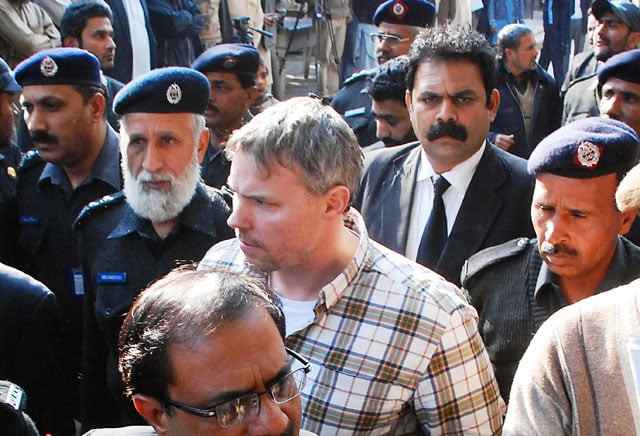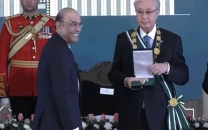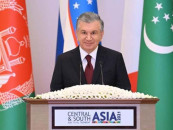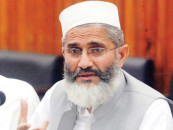From Raymond Davis to Surjeet Singh, use and abuse of diplomatic immunity
Updating the law is long overdue to restrict diplomatic immunity and reduce the number of people who enjoy it

Raymond Davis. PHOTO: AFP
This is what Indian High Commission official Surjeet Singh was accused of when Pakistan expelled him on the charges of “espionage activities” in October this year. Declaring Singh as persona non grata (person not appreciated) was seen as a reaction to India expelling some members of staff of Pakistani High Commission on similar charges. But in the midst of rising tensions between the two countries, some very important legal and strategic questions about the law that grants diplomatic immunity remained unanswered.
Eight Indian spies masquerading as diplomats outed
The convention regulating diplomats and their immunity is the Vienna Convention on Diplomatic Relations of 1961. Under Article 22 of the convention, immunity is guaranteed to diplomatic personnel, premises, communications and official records. This means no agent, police or otherwise, of the host state can enter the premises, confiscate official records or interfere with the work of diplomatic mission in any form. The rational for such absolute immunity is to allow efficient performance of the diplomatic mission.
Problems arise when this unfettered immunity allows diplomatic personnel to operate with a free hand as even their communication and official records stay immune from the law of the host state. The only remedy the host state has is to expel the person under the principal of persona non grata but how expelling individuals mitigates the damage done by collection of sensitive data remains unclear and an area of concern.
While allowing immunity in the course of legitimate diplomatic missions and treating diplomatic personnel with dignity and respect has been a custom in international relations historically, allowing diplomats to spy on the host state under the guise of diplomatic immunity is not. In fact, Article 41 of the convention expressly imposes a duty on the diplomats to not interfere in the internal affairs of the host state. However, as investigations are limited because of immunity, there’s not much the host country can do to counter the damages.
Diplomat or not, Davis departs
Most importantly, how does it make sense to provide unfettered immunity to individuals when it goes against one of the very basic tenets of modern legal system – the rule of law, that everyone is equal in the eyes of law? There have been numerous cases where diplomatic personnel were involved in illegal activities such as rape by Erick Bairnals in Philippines and drug smuggling by Venezuelan general but they are not treated like criminals. The most controversial was the case of Raymond Davis who shot and killed two men in Lahore in 2011. The US government had insisted that Davis – a CIA contractor - has a diplomatic passport and was protected from prosecution.
New Delhi, Islamabad expel diplomats
The solution is not to go to the other extreme by advocating for the elimination of protection of diplomats as that would be just as problematic as it might affect the efficiency of diplomatic missions. However, in a world where countries remain fragile to sabotage and where we often hear the rhetoric of upholding rule of law in the domestic sphere, giving some individuals absolute immunity is both hypocritical and dangerous to national security.
A codified international convention cannot be unilaterally changed by Pakistan hence the way forward would be try to form a consensus amongst international community by arguing that it is not a matter of concern for just one country. The next step should be to advocate reforms in the law that place some form of checks and balances on the workings of diplomats, especially with regard to interference in internal affairs of another country, and reduce the number of people who enjoy diplomatic immunity.
Saad Ahmed Dogar is a lawyer based in Lahore.



















COMMENTS
Comments are moderated and generally will be posted if they are on-topic and not abusive.
For more information, please see our Comments FAQ